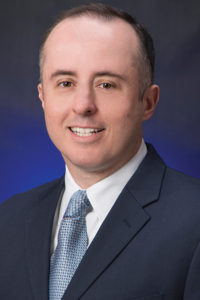
The CHEST 2019 Annual Meeting kicks off soon in New Orleans—home of Dixieland jazz, delicious food, and vibrant culture. CHEST is embracing “The Big Easy” this year by delivering top-notch, quality education and fun experiences to help physicians go ‘big’ for patients back home, truly optimizing their care.
The CHEST Scientific Program Committee worked deliberately to select the most meaningful content covering all aspects of pulmonary, critical care, and sleep medicine, after receiving the most educational session proposals ever to an annual meeting.
“This is the premier event of the year in terms of clinical education of diseases of the chest, so you have to have the best science and information to work with,” said CHEST 2019 Program Chair William Kelly, MD, FCCP, noting that this year’s meeting saw a 40% increase in scientific abstracts and case reports submitted.
CHEST is committed to its engaging, interactive learning for the whole medical team. This includes an advanced simulation skills laboratory with great faculty, latest technology, cadaveric laboratories, and more. And because CHEST is ‘going big’ this year, the meeting is offering 15% more simulation—over 45,000 square feet—bigger than a professional football field and surrounding area.
“We invest a lot of time in our hands-on simulation learning and making sure physicians have a reliable, valid checklist of skills, so when they go back home, they’re more confident because their procedural skills are better,” Dr. Kelly said. “The faculty are not only experts at the procedures, but they’re carefully trained to be great facilitators.”
Physicians, clinicians, and trainees are all under tremendous stressors that contribute to burnout (moral injury), Dr. Kelly noted. The time pressure is also a real issue in medical care and practice today.
“In a world with all these pressures, we wanted to make it clear that CHEST is on YOUR side,” he said. “We’ve done over two dozen things this year to make your learning and life, easier.”
One example is offering childcare at this year’s meeting. This is one tiny part of cutting into the gender gap and ‘parenting penalty’ in medicine and science at scientific conferences, which impedes the ability for academic advancement. Another innovation is the Wellness Zone, a zen area for recharging and relaxing but also an area to grab information on physician wellness. This is in addition to the Training & Transitions Lounge with programming for fellows and other trainees, and a Donor Lounge for the CHEST Foundation.
Other odes to the “easy” include free professional headshots and live and recorded content available on CHESTTV.org.
But being easy is not enough. Dr. Kelly wants the learning to be fun, “Because if you’re having fun and are engaged, you absorb the material better and have a deeper understanding of it.”
CHEST Games (Games Augmenting Medical Education) continue to grow each year. They help health-care professionals work through cases or medical procedures in a video game format by learning in a fun and competitive way and are open Monday through Wednesday in the Exhibit Hall. CHEST is also piloting its own innovation competition, FISH Bowl (Forwarding Innovation and Science for Health) a kinder, gentler CHEST-like version of Shark Tank, and a pulmonary knowledge escape room with a science fiction theme. There is also CHEST Challenge Championship the night of Tuesday, October 22, and of course, a few surprises.
Check out some of the Interdisciplinary Sessions being offered. They are “interdisciplinary”—pulmonologists, pathologists, radiologists, but also “interprofessional” with physicians, respiratory therapists, advanced practice providers, and others, Dr. Kelly emphasized.
“CHEST has always been patient-centered and team-focused, as it takes a whole system and team to care for our patients,” he said. We’ve seen an increase in advanced practice providers in clinics, intensive care units, and as attendees and faculty at our CHEST programs.
CHEST is filling the meeting with the most valuable content needed for pulmonary, critical care, and sleep clinicians. When the convention center was filled, CHEST prerecorded some high-ranking presentations to run in the video overflow room. And because there are only so many hours in the day, CHEST is offering a new learning consolidation program where you have online access to supporting materials including articles, so you learning goes deeper and you get more CME/MOC credit for the same duration of meeting.
“This week will be a wonderful opportunity to learn, reinforce skills, network with colleagues, and see old and new friends,” Dr. Kelly said. “There has been unbelievable innovation in diagnosis, therapies, and our understanding of diseases of the chest since our last New Orleans meeting in 1997. But one thing hasn’t changed: ‘We hope that this trip to New Orleans satiates your appetite for good food and great jazz while providing exceptional educational nourishment.’”





